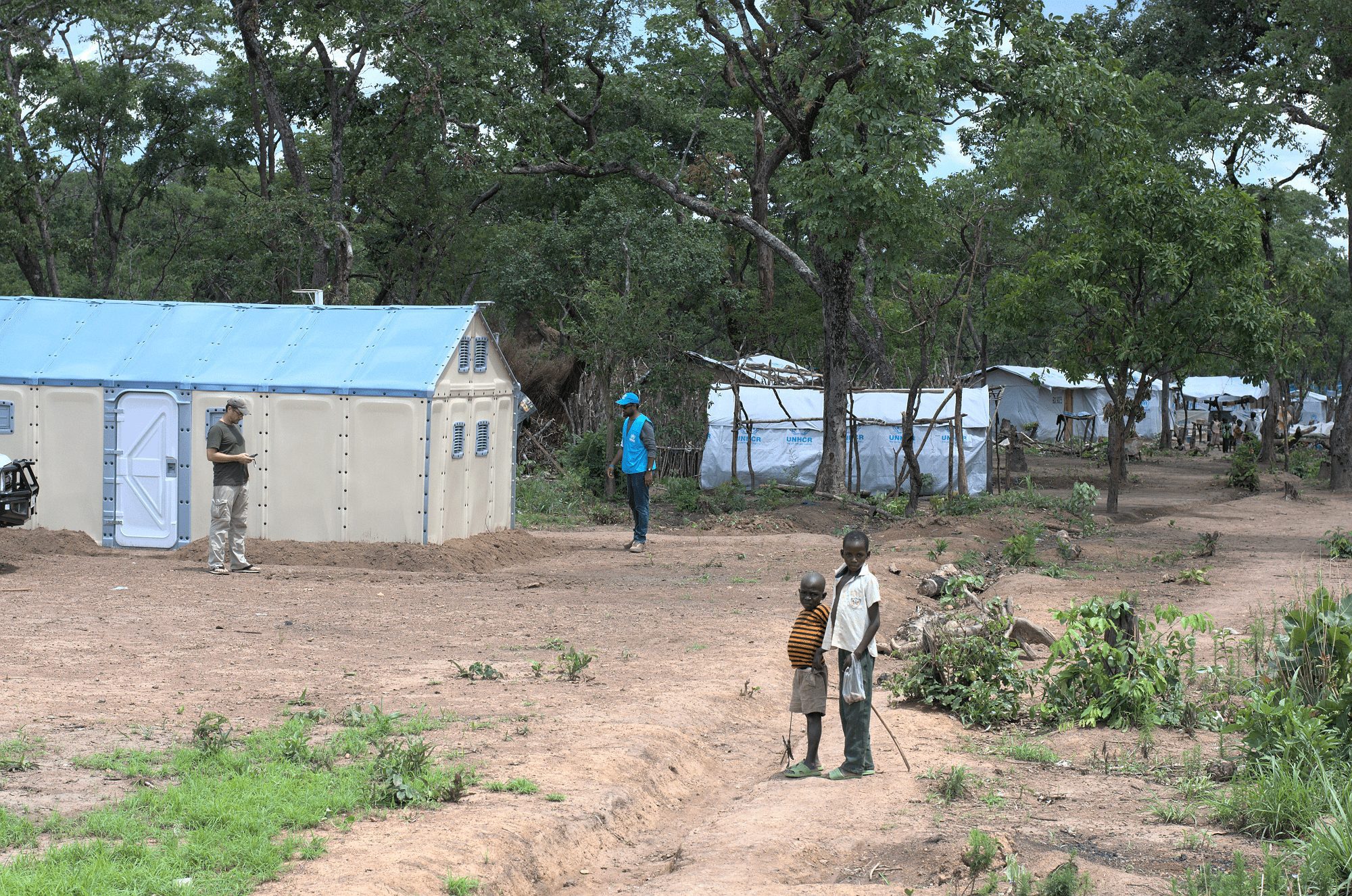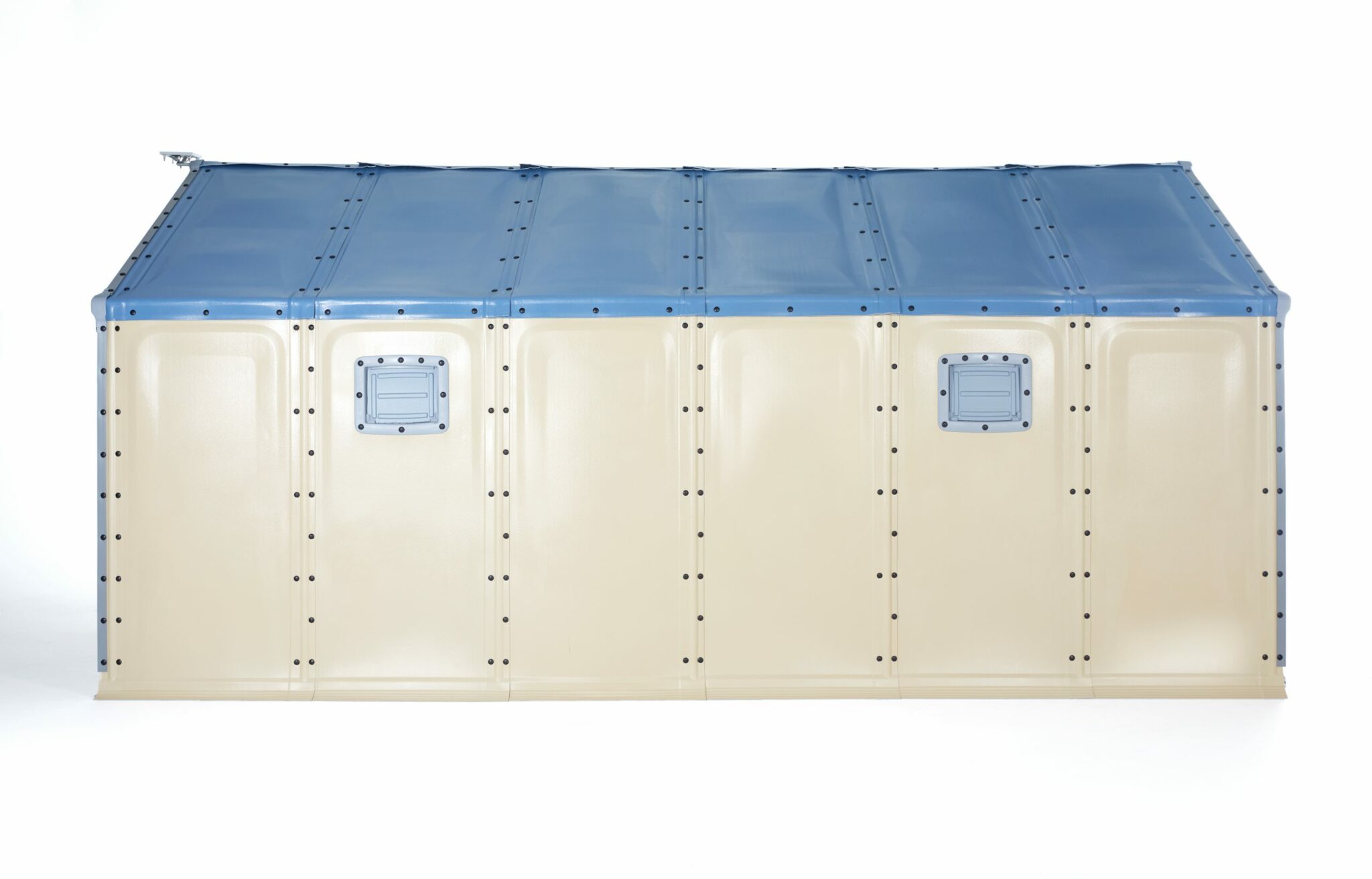Sheltering families through their transit journeys in Iraq
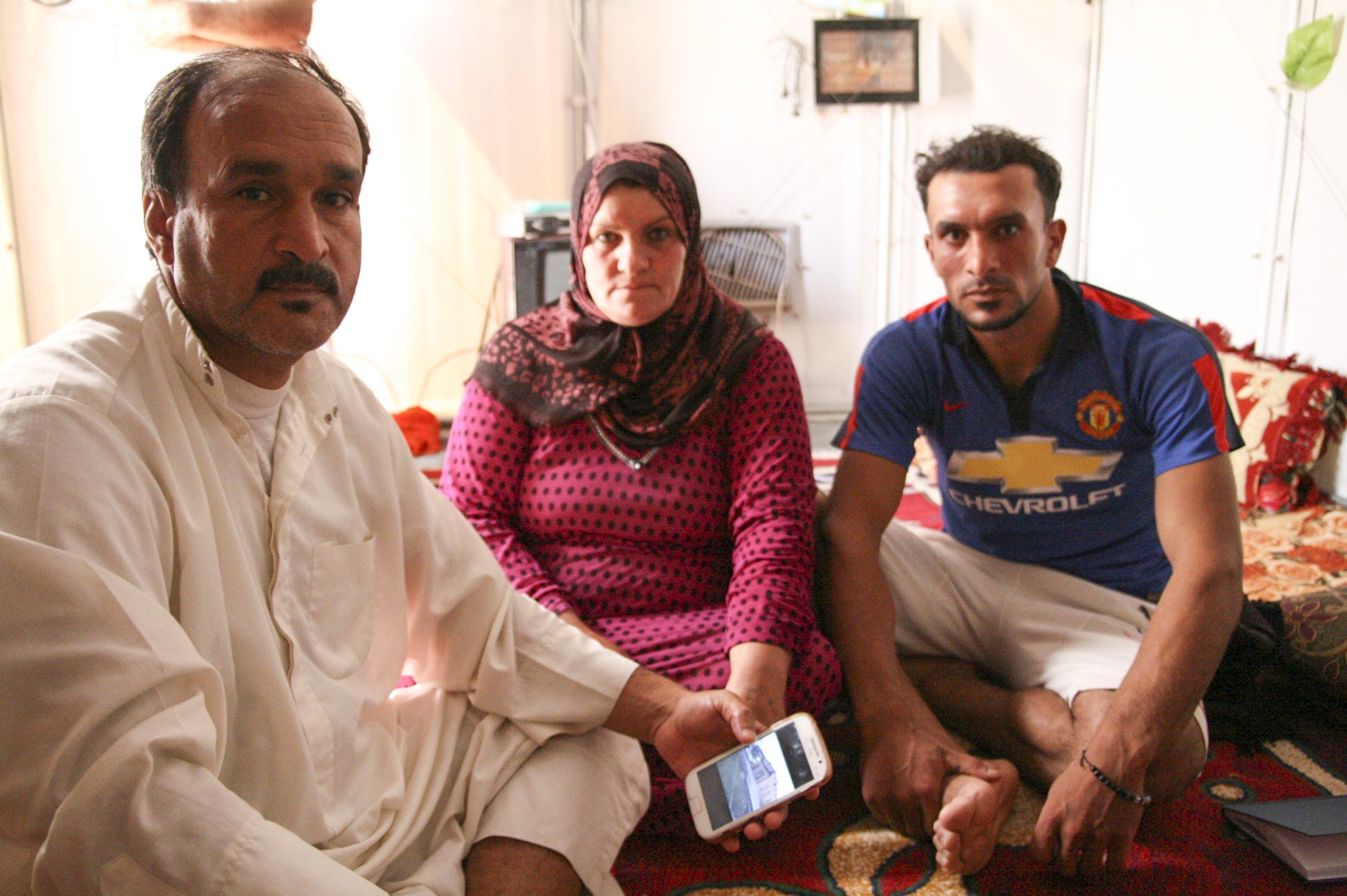
Due to ongoing violence and conflict, more than 3.4 million people in Iraq have been displaced and are currently living in thousands of settlements across the country. Iraq now has the third-largest population of internally displaced people (IDPs) in the world, with 3.2 million people displaced in the country since January 2014. IDP and returnee families suffer from a severe housing shortage and inflation of rent, often living in overcrowded and substandard dwellings or in destroyed or damaged homes.
“A home gives a sense of privacy that we have not had for years” – Abdullah.
In 2016, the Iraqi Government regained control of the cities of Ramadi and Falluja, and former residents began returning to assess the damage. They found their neighbourhoods destroyed, littered and looted. Despite the devastation in Ramadi, by August 2017 some 370,000 people had returned to rebuild. In Falluja, with less extensive damage, 400,000 had returned. UNHCR and its NGO partners are helping hundreds of families with repairs, while people whose homes are uninhabitable have been given temporary housing units.
In response to this deepening humanitarian crisis, the Polish Center for International Aid (PCPM) donated hundreds of Better Shelter Relief Housing Units (RHUs) to UNHCR to shelter returning families in northern Iraq. A total of 500 RHUs were implemented with the support of UNHCR and handed over to returning families, in order to provide a safe and temporary shelter while their homes are in reconstruction.
“Thanks to these shelters, a lot of families have been able to return to the village from the refugee camps” – the Major of Barzan.
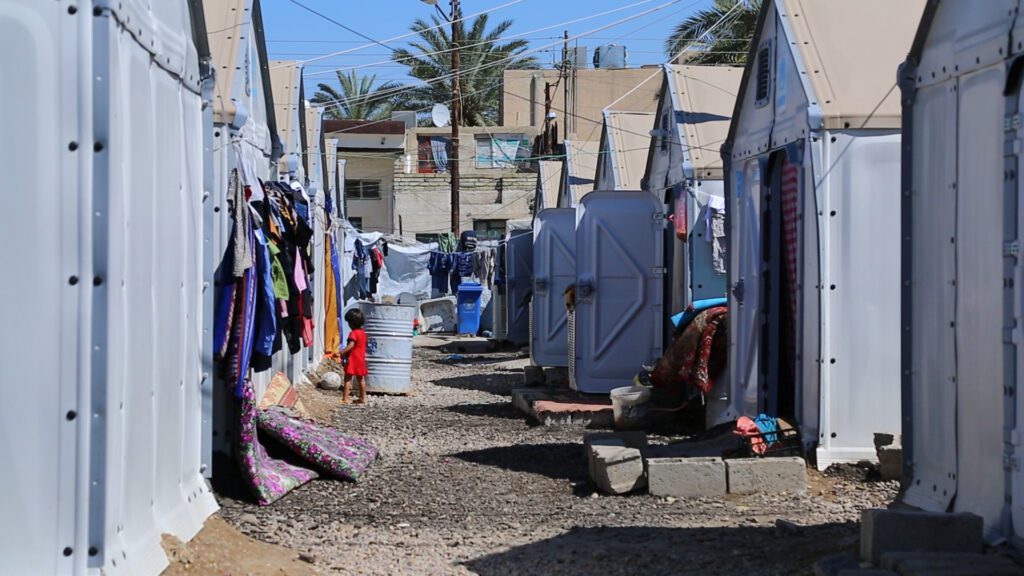
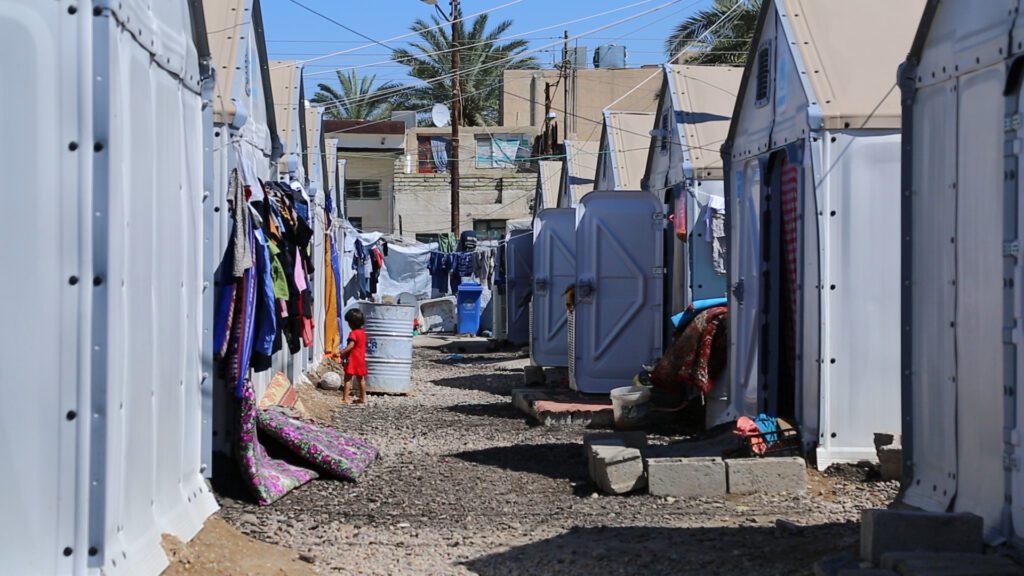
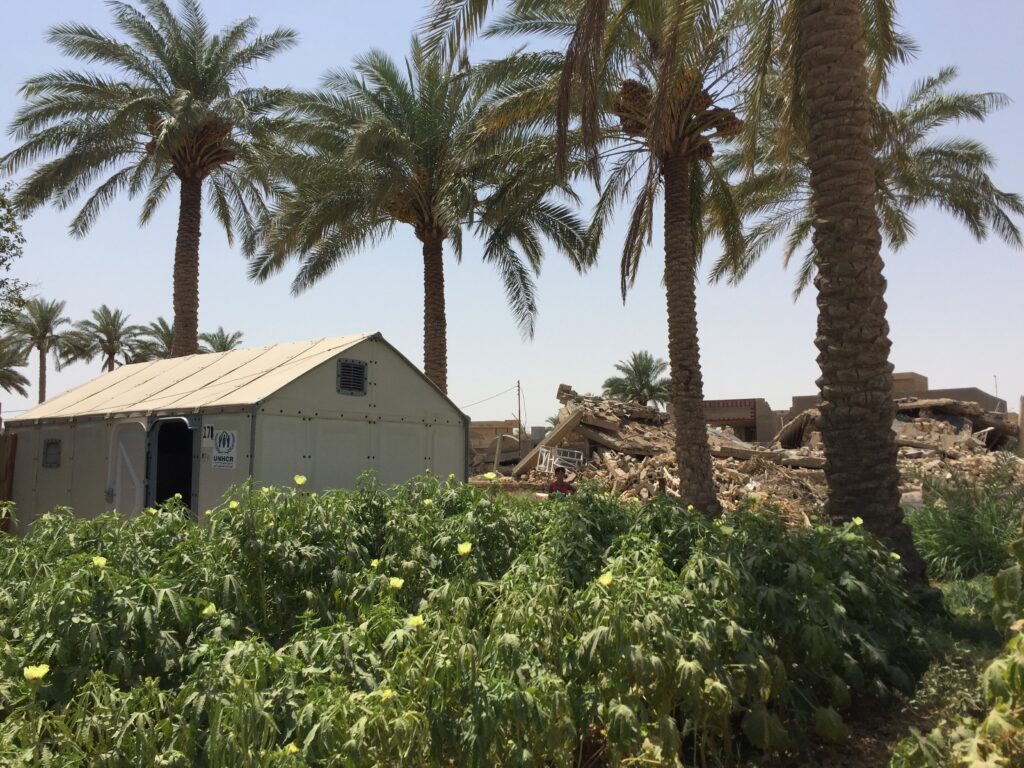
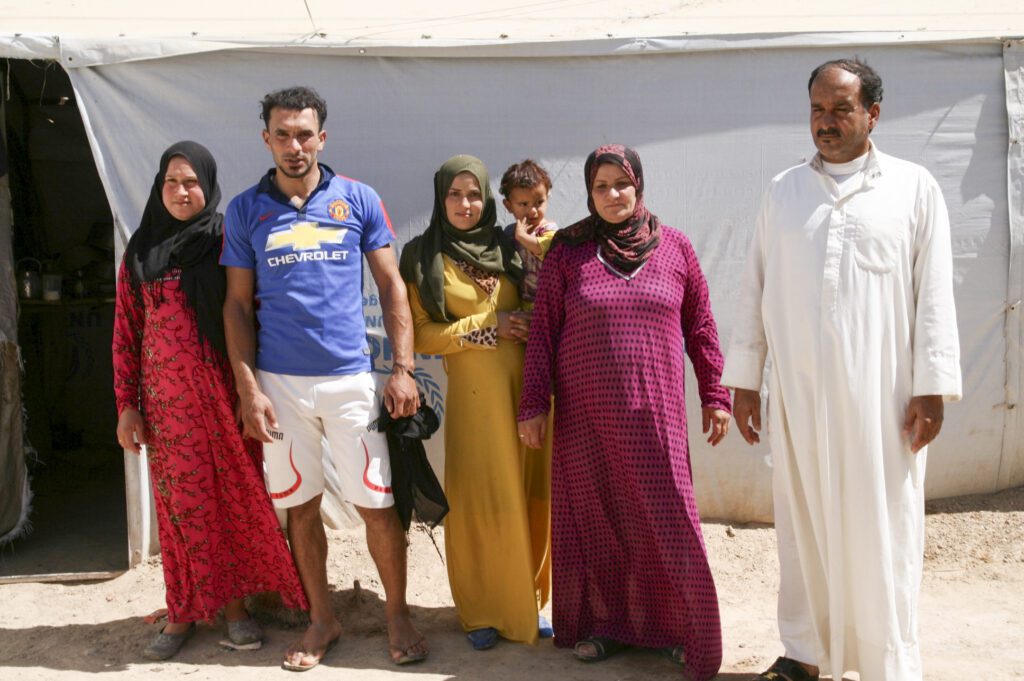
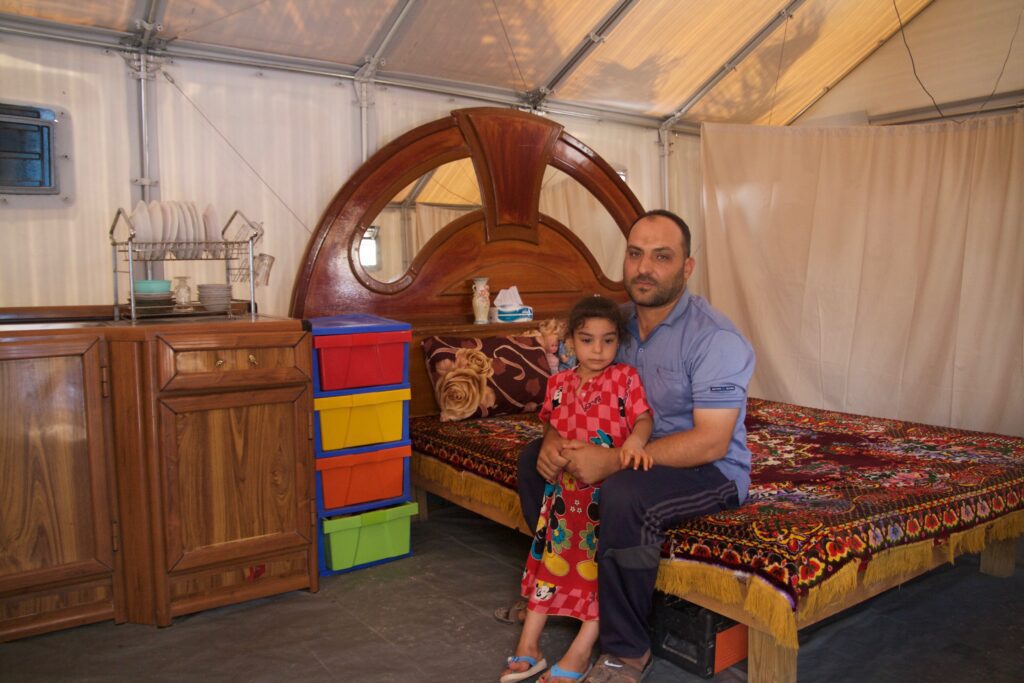
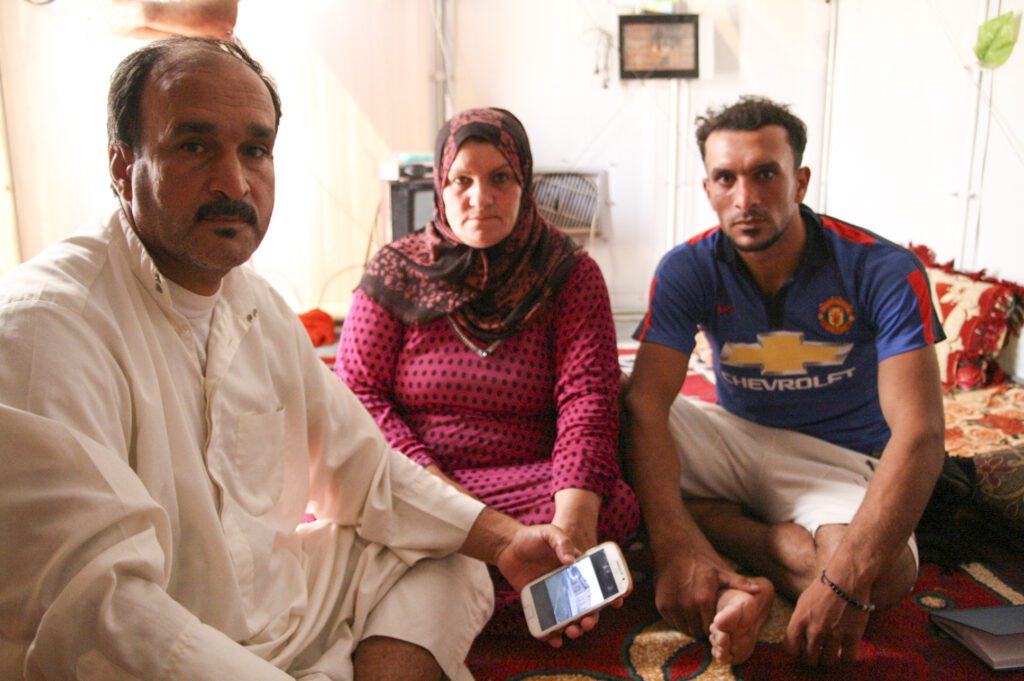
The Relief Housing Units (RHUs) were used as temporary accommodation alongside a demolished family home in Ramadi, Iraq by UNHCR and the Iraqi Salvation Humanitarian Organisation.
“We came back to find the house completely destroyed.” Farmer, Ibrahim Abd Salih (right), 49, and his family stand outside their new RHU. The family fled the city in 2015 and spent nearly two years at a displacement camp in Amiriyat al-Falluja before returning home. UNHCR is helping displaced Iraqis with essential repairs as they return to their homes in the badly damaged cities of Ramadi and Falluja. In 2014, armed extremists brought terror to both cities. Those who could, fled for their lives leaving belongings behind and spent two years living in displacement camps. Those who remained, lived in fear under oppressive tyrants, waiting and hoping for their hometowns to be liberated. In 2016, the Iraqi Government retook both cities and former residents began returning to assess the damage. They found their neighbourhoods littered with explosive devices and their houses half-destroyed and looted. Despite the devastation in Ramadi, by August 2017 some 370,000 people had returned to rebuild. In Falluja, with less extensive damage, 400,000 had returned. UNHCR and its NGO partners are helping hundreds of families with repairs, while people whose homes are uninhabitable have been given temporary housing units.

